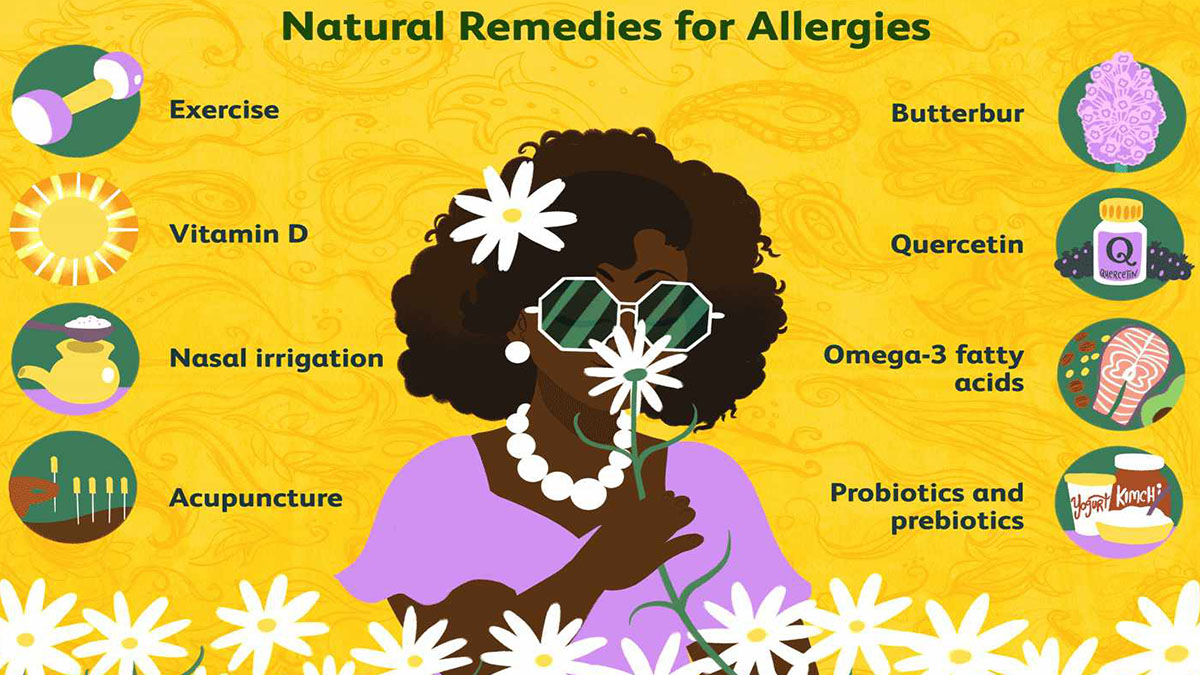
Allergies can be a significant nuisance, affecting quality of life and daily activities. While there is no one-size-fits-all cure for allergies, a variety of treatments and strategies can help manage and alleviate symptoms. This article explores current approaches to treating allergies, emerging therapies, and practical tips for living comfortably with allergies.
1. Understanding Allergies
**1.1. What are Allergies?
- Definition: Allergies are hypersensitive immune responses to substances known as allergens, which are usually harmless to most people. Common allergens include pollen, dust mites, pet dander, certain foods, and insect stings.
- Symptoms: Allergic reactions can range from mild symptoms like sneezing and itching to more severe reactions such as difficulty breathing and anaphylaxis.
**1.2. Types of Allergies
- Seasonal Allergies: Triggered by pollen from trees, grasses, and weeds, often occurring during specific seasons.
- Food Allergies: Caused by specific foods such as nuts, shellfish, or dairy.
- Environmental Allergies: Includes allergens like dust mites, mold, and pet dander.
- Insect Allergies: Resulting from stings or bites from insects such as bees or mosquitoes.
2. Current Treatment Options
**2.1. Avoidance Strategies
- Identify Triggers: Determine what causes your allergic reactions through testing or observation.
- Minimize Exposure: Avoid known allergens by making changes to your environment, such as using air purifiers, cleaning regularly, and avoiding certain foods or animals.
**2.2. Medications
- Antihistamines: Help reduce symptoms like sneezing, itching, and runny nose by blocking histamines, which are chemicals released during allergic reactions.
- Decongestants: Reduce nasal congestion and sinus pressure by narrowing blood vessels in the nasal passages.
- Corticosteroids: Reduce inflammation and are effective for managing chronic allergies. Available in nasal sprays, oral tablets, or topical forms.
- Leukotriene Receptor Antagonists: Help manage allergic asthma and reduce inflammation by blocking leukotrienes, chemicals involved in allergic reactions.
**2.3. Immunotherapy
- Allergy Shots: Involve receiving regular injections of small amounts of allergens to build tolerance over time. This method is suitable for individuals with severe allergies or those who do not respond well to medications.
- Sublingual Immunotherapy: Involves placing a tablet containing allergens under the tongue to build tolerance. This method is less invasive and can be used for certain allergens like pollen.
3. Emerging Therapies and Research
**3.1. Biologic Medications
- Overview: Biologics are a new class of medications that target specific components of the immune system involved in allergic reactions. They are used for severe asthma and chronic rhinosinusitis with nasal polyps.
- Examples: Omalizumab (Xolair) and mepolizumab (Nucala) are biologics that can help reduce the frequency and severity of allergic reactions.
**3.2. Desensitization Treatments
- Research: Ongoing studies are exploring new methods of desensitizing the immune system to allergens, including oral desensitization and innovative vaccine approaches.
- Potential: These therapies aim to provide long-term relief and potentially lead to a permanent cure for allergies.
4. Lifestyle Tips for Managing Allergies
**4.1. Healthy Living
- Diet: Maintain a balanced diet rich in fruits, vegetables, and omega-3 fatty acids to support overall immune health.
- Exercise: Regular physical activity can strengthen the immune system and improve overall well-being.
**4.2. Home Environment
- Clean Regularly: Reduce allergens in the home by vacuuming with a HEPA filter, washing bedding frequently, and using air purifiers.
- Allergen-Proofing: Consider allergen-proof covers for pillows and mattresses, and keep windows closed during high pollen seasons.
**4.3. Stress Management
- Techniques: Practice stress-reducing activities such as yoga, meditation, and deep breathing exercises, as stress can exacerbate allergic symptoms.
- Support: Seek support from friends, family, or support groups to help manage the emotional impact of living with allergies.
5. When to Seek Professional Help
**5.1. Severe Allergic Reactions
- Emergency Care: Seek immediate medical attention for severe reactions, such as anaphylaxis, which can be life-threatening and requires prompt treatment with epinephrine.
**5.2. Consulting an Allergist
- Expert Advice: If over-the-counter treatments are ineffective or symptoms are severe, consult an allergist for specialized testing and treatment options.
- Personalized Plan: An allergist can create a personalized management plan tailored to your specific allergens and health needs.
Conclusion
While there may not be a definitive cure for allergies, a combination of avoidance strategies, medications, and emerging therapies can significantly improve quality of life and manage symptoms effectively. By staying informed about new treatments and adopting practical lifestyle changes, you can take control of your allergies and enjoy a more comfortable and healthy life.
